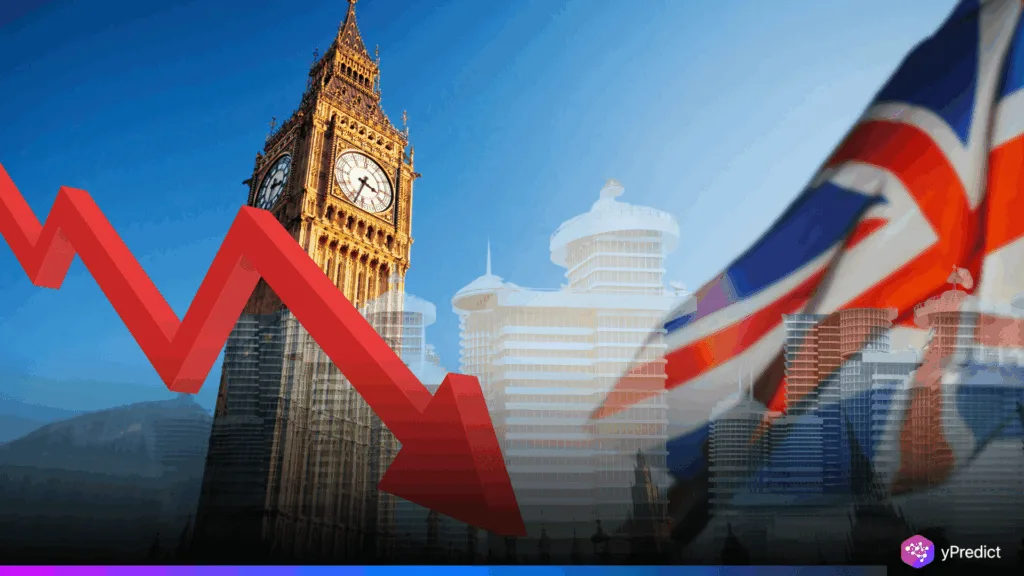
The UK economy shrank by 0.1% in May, the second consecutive month that it has done so, according to official data. Donald Trump’s reinstated tariff policies, higher employer taxes, and a sharp drop in retail sales contributed to a decline in overall output. Additionally, the contraction came after a 0.3% decline in April.
This decline increases pressure on Chancellor Rachel Reeves. Additionally, it raises the possibility of interest rate cuts by the Bank of England. The industrial and construction sectors pulled the economy down, while the services sector grew very little.
Retail Sales Crash Deepens UK Economy Problems
Retailers suffered the most in May, with retail sales plunging by 2.7%. The increase in wages and employer tax contributions hurt this industry, which is largely dependent on workers making minimum wage. Furthermore, households are under stress due to inflation and cautious borrowing, which is reflected in the drop in consumer spending.
ONS official Liz McKeown confirmed a drop in production and construction output. Services saw slight increases, but not enough to counteract the broader economic downturn. It’s possible that an activity was pushed forward to earlier months in anticipation of tariff increases from the US.
Additionally, a brief spike in auto exports after the UK-US trade agreement on May 8 helped a little. However, the general attitude among companies stayed subdued. The baseline U.S. tariff on Britain remains at 10%. For important export industries like steel and automobiles, this restricts relief.
Will Interest Rate Cuts Save Growth This Time?
However, the ongoing declines have sparked concerns that the UK economy is declining. Analysts predict that these figures will increase the likelihood of a rate cut by the BoE in August.
ICAEW’s Suren Thiru stated that a reduction in interest rates is “inevitable” due to the economy’s slowness. Additionally, weak output indicates weak consumer sentiment despite recent wage growth. For any meaningful recovery, simpler policy measures and lower borrowing costs might be required.
Furthermore, the end of a homebuyer tax break and a pre-tariff manufacturing boom are expected to distort growth in early 2025. Yael Selfin of KPMG and other experts predict that strong wage growth will support a rebound in household spending. Moreover, they think that eventually, possibly falling interest rates might increase consumer confidence even more.
Can the UK Economy Regain Momentum?
The UK economy appears vulnerable based on the most recent GDP data. Weak consumer confidence and two consecutive monthly contractions indicate more serious structural issues. Additionally, Reeves is under pressure to strike a balance between growth incentives and financial responsibility. June figures must at least remain unchanged to avoid a quarterly contraction.
However, Q2 would turn negative if monthly declines exceeded 0.4%. According to economists, reducing interest rates and increasing retail sales in the second half of 2025 could help ease the slowdown. However, global tariffs and policy mistakes still present significant risks.







